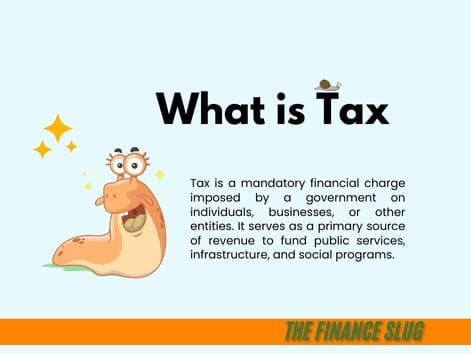
What is Credit?. Credit is an essential part of modern finance that helps people make purchases, take loans, and achieve goals they might not be able to afford right away. Whether you’re using a credit card to shop or applying for a mortgage to buy a house, credit plays a key role in your financial life. But what is credit exactly, and how does it work? This blog will explain credit in simple terms and highlight how it affects your financial health.
What is Credit?
Credit is a system where a lender allows a borrower to access goods, services, or money now and repay it later. The lender trusts that you will repay the amount you owe within an agreed timeframe, usually with interest. For example, when you swipe your credit card at a store, the credit card company pays the store, and you agree to repay the company later, typically with some interest added.
In simple terms, credit is borrowing money with the promise to pay it back in the future.
How Does Credit Work?
When you apply for credit, whether for a loan or a credit card, the lender will evaluate how trustworthy you are as a borrower. This evaluation is based on your credit history (past behavior in borrowing and repaying), and it’s often represented by a credit score.
Your credit score is a number that lenders use to determine your reliability. Higher scores mean you’re more likely to get approved for credit at lower interest rates, while lower scores can make it harder to borrow money, or result in higher interest rates.
Factors That Affect Your Credit Score
- Payment History (35%): The most important factor, showing whether you’ve paid your bills on time.
- Credit Utilization (30%): The ratio of how much credit you use compared to your total credit limit.
- Length of Credit History (15%): How long you’ve been using credit. A longer history shows more experience managing credit.
- Credit Mix (10%): Having different types of credit accounts (credit cards, loans, mortgages) can help improve your score.
- New Credit (10%): Opening too many new accounts in a short time can lower your score.
Types of Credit
Credit comes in different forms depending on the agreement between the borrower and the lender. The most common types are:
- Revolving Credit
- Examples: Credit cards, home equity lines of credit (HELOCs).
- You have a credit limit, and you can borrow up to that limit, pay back part of it, and borrow again.
- Installment Credit
- Examples: Car loans, student loans, mortgages.
- You borrow a fixed amount of money and repay it in equal installments over time.
- Open Credit
- Examples: Utility bills (electricity, water, internet).
- You use the service and pay the full balance at the end of each month.
- Trade Credit (for businesses)
- Examples: Agreements between businesses and suppliers to pay for goods or services at a later date.
Why is Credit Important?
Credit isn’t just useful for individuals, but it also plays a vital role in business and the economy as a whole. Here’s why it’s so important:
- For Individuals:
Credit allows people to make big purchases like a home, car, or education without needing all the money upfront. It’s a tool for achieving life goals by spreading payments over time. - For Businesses:
Businesses use credit to finance their operations, pay employees, purchase inventory, and grow their business. It helps businesses maintain cash flow and keep things running smoothly even when they face temporary financial challenges. - For the Economy:
Credit fuels economic growth by enabling businesses to invest and expand, while individuals use it to increase spending and invest in their futures.
How to Build a Good Credit History
Building and maintaining good credit can take time, but it’s essential for your financial health. Here’s how to start:
- Pay Your Bills On Time
- Your payment history is the most significant factor in your credit score. Make sure to always pay your bills by the due date.
- Keep Your Credit Utilization Low
- Try to use no more than 30% of your available credit. For example, if your credit card has a $1,000 limit, aim to keep your balance under $300.
- Check Your Credit Report Regularly
- You’re entitled to one free credit report from each of the three major bureaus every year. Review your report for any mistakes that could affect your score.
- Keep Old Accounts Open
- The length of your credit history affects your score. Closing old accounts can shorten your history and negatively impact your score.
- Limit New Credit Applications
- Each time you apply for credit, a “hard inquiry” is made on your credit report, which can slightly lower your score. Try not to open too many accounts in a short time.
The Risks of Credit
While credit is a helpful tool, it can also lead to problems if not managed correctly. Here’s what to watch out for:
- Debt Accumulation
- If you don’t repay your borrowed amount on time, interest adds up, and your debt can quickly grow beyond what you expected.
- Damaged Credit Score
- Late payments, defaults, and high credit card balances can harm your credit score. A lower score means higher interest rates and fewer borrowing opportunities in the future.
- High-Interest Rates
- Some types of credit, like credit cards, come with high interest rates. If you carry a balance, it can cost you much more in the long run.
Real-Life Example: How Credit Can Help You
Let’s say you want to buy a car, but you don’t have enough saved. You can take out a car loan (installment credit), and the bank will give you the money to buy the car. You’ll pay back the loan in monthly payments over a few years. If you’ve used credit responsibly before (e.g., paying off credit cards on time), you’ll likely get a lower interest rate, meaning you’ll pay less in total. However, if you’ve missed payments in the past, you may get a higher interest rate.
Conclusion
Credit is a valuable financial tool that can help you buy what you need now and pay later, but it comes with responsibilities. By understanding how credit works, using it wisely, and managing your credit score, you can make the most of it and avoid falling into debt. Remember, credit can help you achieve big goals, but always make sure to pay back what you owe on time to avoid extra costs and potential damage to your financial health.
Open Financial Dictionary to Learn more Finance Terms
- Stock Market Crash Today: A Bloodbath on Monday – What You Need to KnowPublished on financeslug.xyz The global financial markets are reeling from a massive sell-off, and Indian equity benchmark indices BSE Sensex and Nifty50 took a brutal hit on Monday. Both indices plunged over 4%, marking one of the worst trading sessions in recent memory. At 10:41 AM, BSE Sensex was trading at 72,505.18, down 2,860 points… Read more: Stock Market Crash Today: A Bloodbath on Monday – What You Need to Know
- Wall Street Bonuses Reach Record $47.5 Billion in 2024, Up 34% from Previous YearWall Street’s bonus pool hit a record $47.5B in 2024, up 34% from 2023, marking the highest payout since 1987.
- How to Convert Delimited CSV Data into Columns in ExcelCSV (Comma-Separated Values) files are widely used for data exchange, but when opened in Excel, the data often appears in a single column instead of being split into separate columns. Fortunately, Excel provides a simple way to convert delimited data into structured columns. Step-by-Step Guide to Convert Delimited CSV Data into Columns in Excel Method… Read more: How to Convert Delimited CSV Data into Columns in Excel
- Harvard University Announces Free Tuition for Families Earning $200K or LessHarvard’s New Tuition-Free Policy: What You Need to Know Harvard University has unveiled a groundbreaking initiative to make higher education more accessible. Starting from the 2025-26 academic year, students from families earning up to $200,000 annually will qualify for free tuition. This move significantly raises the previous income threshold of $85,000, making quality education more… Read more: Harvard University Announces Free Tuition for Families Earning $200K or Less
- Eli Lilly’s 1.8B Dollar Investment in Weight Loss DrugsIreland’s Weight-Loss Drug Boom: A Game-Changer for Economy and Healthcare Ireland is witnessing a surge in pharmaceutical investments, thanks to the skyrocketing demand for weight-loss drugs like Ozempic and Wegovy. Global pharmaceutical giant Eli Lilly is leading the charge, pouring billions into Irish manufacturing facilities to meet growing consumer needs. This trend not only reinforces… Read more: Eli Lilly’s 1.8B Dollar Investment in Weight Loss Drugs


Pingback: What is Accrue? History, Types, and How It Works
Pingback: What is a Credit Card? Benefits, Uses, and Tips to Use it
Pingback: AAA Credit Rating: What They Are, Benefits, and Importance
Pingback: What Are Financial Statements? Learn Purpose and Importance
Pingback: How to Borrow Money from Cash App: Step-by-Step Guide
Pingback: 10 Reasons Why IUL Is a Bad Investment